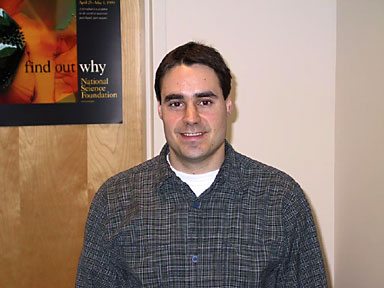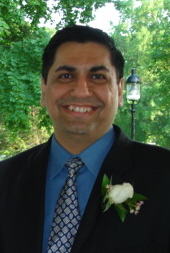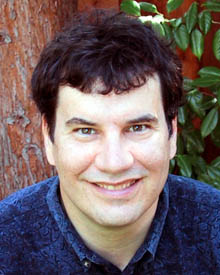| Home |
| Call for Papers |
Technical Program |
| Registration |
| Accommodation |
| Organizing Committee |
| Program Committee |
| Contact us |
| Submissions |
Keynote and Invited Speakers
Si Technology Roadmap For Ubiquitous Computing, Sensing, and Perception

Dr. Dennis Buss,
Texas Instruments
Dennis Buss is currently Vice President of Silicon Technology Development at Texas Instruments Incorporated with responsibility for Technology Computer Aided Design (TCAD) and is the chairman of TIís Technical Ladder Policy Board (TLPB). Dennis began his industrial career at Texas Instruments in July 1969. During the next 18 years, Dennis was TI Fellow and later Vice President and Director of TI's Semiconductor Process and Design Center. Between 1987 and 1997, Dennis was Vice President of Technology at Analog Devices. He returned to Texas Instruments in December 1997. Dennis received his BS, MS and Ph.D. in Electrical Engineering from MIT in 1963, 1965 and 1968. He served twice on the Electrical Engineering faculty at MIT in 1968-1969 and 1974-1975. He is an IEEE Fellow and the recipient of the 1985 Herschel Award and the 1987 Jack A. Morton Award for his pioneering work on HgCdTe Infra-Red monolithic focal plane technology. In February 2000, Dennis was selected by the Electron Devices Society to be one of the recipients of an IEEE Third Millennium Medal.
Making Better Use of Time in Mixed-Signal Circuits

Prof. Michael Perrott,
Massachusetts Institute of Technology (MIT)
Michael H. Perrott received the
B.S. degree in Electrical Engineering
from New Mexico State University, Las Cruces, NM in 1988, and the M.S.
and Ph.D. degrees in Electrical Engineering and Computer Science from
Massachusetts Institute of Technology in 1992 and 1997, respectively.
From 1997 to 1998, he worked at Hewlett-Packard Laboratories in Palo
Alto, CA, on high speed circuit techniques for Sigma-Delta synthesizers.
In 1999, he was a visiting Assistant Professor at the Hong Kong
University of Science and Technology, and taught a course on the theory
and implementation of frequency synthesizers. From 1999 to 2001, he
worked at Silicon Laboratories in Austin, TX, and developed circuit and
signal processing techniques to achieve high performance clock and data
recovery circuits. He is currently an Associate Professor in Electrical
Engineering and Computer Science at the Massachusetts Institute of
Technology, and focuses on high speed circuit and signal processing
techniques for data links and wireless applications.
Low Power Reconfigurable Analog-to-Digital Converters

Dr. Kush Gulati
Cambridge Analog Technologies (CAT), Inc.
Kush Gulati received the Ph.D. degree in electrical engineering and computer science from the Massachusetts Institute of Technology (MIT), Cambridge, in 2001, the M.S. degree in electrical and computer engineering from Vanderbilt University, Nashville,TN, in 1995 and the B.S. degree in electronics and communication engineering from Delhi Institute of Technology (now NSIT), New Delhi, India, in 1993. From 1993 to 1995, he worked on circuit techniques for minimizing susceptibility of DRAMs to alpha particles and cosmic ions. His doctoral research at MIT between 1995 and 2001 was directed towards the design of a low-power reconfigurable analog-to-digital converter.
Thereafter, he helped co-found Engim, Inc., a wireless communications start-up based in Acton, MA, where he led their mixed-signal/analog group developing high-speed and high-resolution data converters. Between August 2005 and August 2007, he was with Bitwave Semiconductor, a startup developing wireless handsets based on software defined radio techniques, based in Lowell, MA, where he was the Director of analog and mixed-signal development.
Since October 2007, he has been with Cambridge Analog Technologies (CAT), Inc., a startup he co-founded. CAT, Inc. is based in the Boston area and focuses on developing low-power analog technologies. He has numerous publications and patents in the area of circuit design. His current areas of interest are high-speed/ high resolution data conversion and high-end analog circuits. While at MIT, Dr. Gulati received the Maxim Integrated Products Fellowship in 1999 and the Analog Devices Outstanding Student Designer Award in 2000. He currently serves on the Technical Program Committee of the VLSI Circuits Symposium.
Towards Efficient Spectrum Sharing

Prof. Bora Nikolic
University of California, Berkeley
Prof. Nikolic received the Dipl. Ing. and M.Sc. in Electrical Engineering from the University of Belgrade, Yugoslavia, in 1992 and 1994, respectively, and the Ph.D. degree in Electrical and Computer Engineering from the University of California, Davis, in 1999. He joined the EECS faculty at U.C. Berkeley in 1999. His research interests include digital integrated circuits and VLSI implementation of communications and signal processing systems. He is the author or co-author of over 100 journal articles and conference presentations, two of which have been singled out for distinction: "A 1.8V 14b 10MS/s pipelined ADC in 0.18μm CMOS with 99dB SFDR" (with Y. Chiu and P. R. Gray), which received the 2004 Jack Kilby Award for Outstanding Student Paper presented at the IEEE International Solid-State Circuits Conference; and "FinFET-based SRAM design" (with Z. Guo, S. Balasubramanian, R. Zlatanovici, and T.-J. King), which received the Best Paper Award at the 2005 International Symposium on Low Power Electronics and Design. In 2003 he co-authored the book, Digital Integrated Circuits: A Design Perspective (2nd ed.), with Jan M. Rabaey and Anantha P. Chandrakasan. He is also author or co-author of five patents. Prof. Nikolic is a member of the IEEE.
Verification of Complex Analog Integrated Circuits

Dr. Ken Kundert
Designers-Guide Consulting
At one time Ken worked at both
Cadence and HP, where he created
Cadence's circuit simulators, Spectre & SpectreRF, and HP's (now
Agilent's) harmonic balance simulator, Gemini. He was the principle
creator of the Verilog-A language and has written three books on
simulation and modeling. And just this year, he was elevated to the
status of IEEE Fellow for these contributions. In 2005 he co-founded
Designer's Guide Consulting with Henry Chang and is now working to help
transition the industry to analog verification.